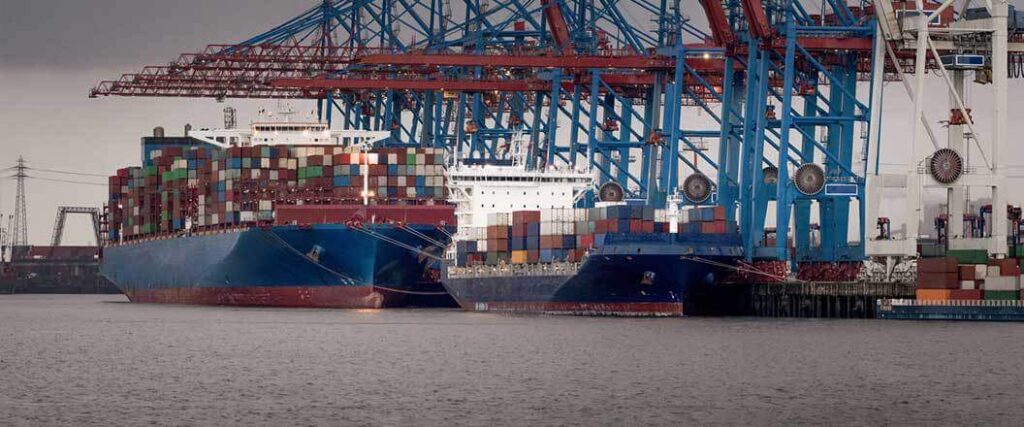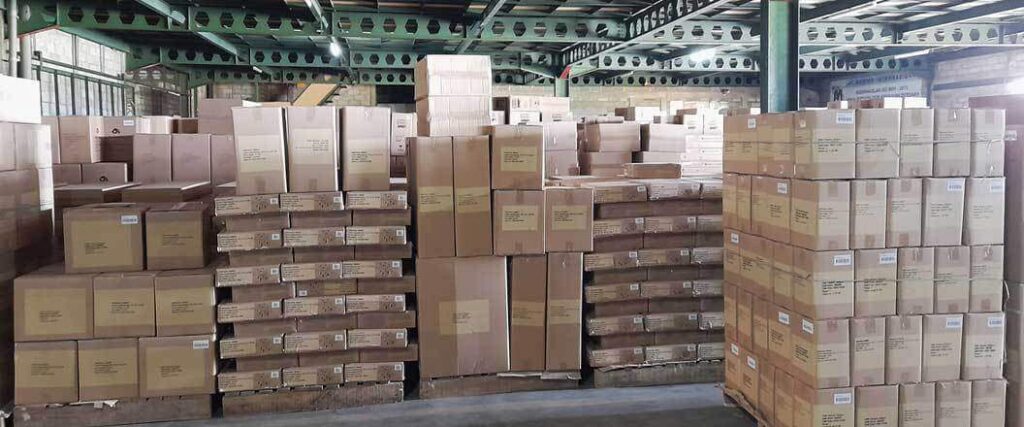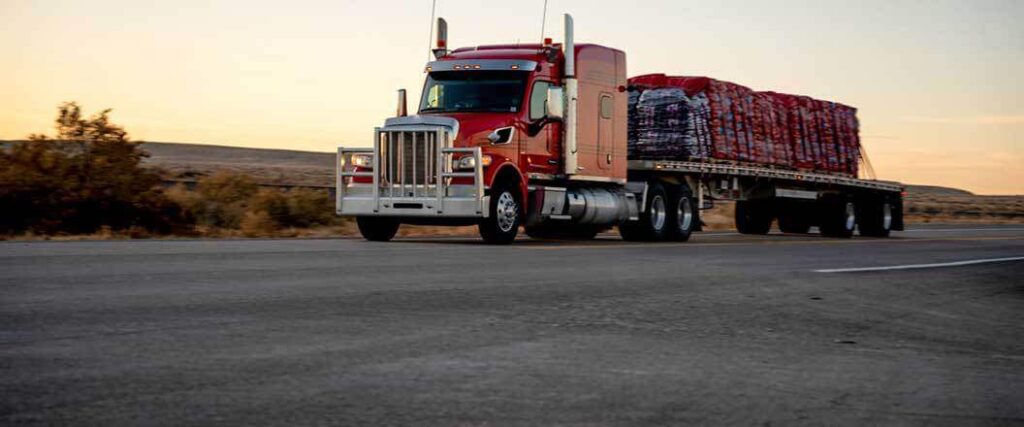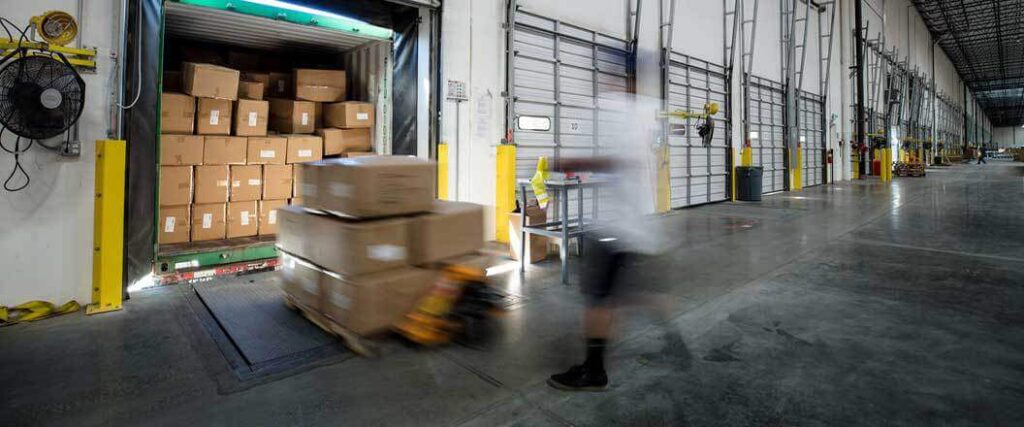The primary benefit of cargo insurance that makes it such an important part of the shipping process is the peace of mind that it provides shippers transporting valuable freight. These benefits can be found in a variety of coverage types and full multiple modes of transport.
The benefits of cargo insurance are superior to limited carrier liability due to the value of the cargo being covered, plus transportation. Under FMCSA 75 FR 35318, 49 CFR 365, carriers are no longer required to insure goods that they transport. The responsibility rests with the shipper or consignee to provide cargo insurance coverage.
The advantages of cargo insurance are wide-reaching and often go without saying. However, you can learn more about protecting yourself and eliminating the stress of shipping cargo with the information below.
The benefit of cargo insurance directly relates to the assurance of investment protection. Cargo insurance coverage is the peace of mind that all shippers should have in their transportation model.
However, protecting your investment is one of many concepts of importance. The other half of this idea is the peace of mind in knowing your investment is immune to any type of loss. This is the most important benefit of any.
Some examples of the advantages of cargo insurance are:
There is something to be said regarding peace of mind. Operating a business at the highest level comes with its own set of responsibilities and worries. The last thing you need as an owner, operator, or manager is the stress of financial loss or partial loss.
Through cargo insurance, you never have to worry about the unfortunate happening of damage, theft, or total loss. Multiple forms of cargo insurance out there provide varying degrees of coverage.

Cargo insurance policies are designed with one thing in mind, the protection of your goods. Whether you are shipping short or long distances, it is better to have peace of mind with a shield around your investment.
A cargo insurance policy covers more than just the limited liability coverage provided by the carrier. The liability coverage a carrier provides only covers the cost of the shipment and does not cover damage to your shipment.
Cargo Insurance policies can cover the following shipping methods:
The list above showcases how all significant modes of transportation are indeed coverable. This is a major win for any company that conducts business domestically or internationally, as it offers a complete solution to risks involved with shipping.
Depending on the level of insurance you secure, policy coverage could include complete protection and reimbursement of the goods that were lost, damaged, or stolen. Additional coverage benefits extend to the examples listed above, like delivery refusals.
During the storage and transportation process, a lot can go wrong quickly. Mishaps can occur during the storage or transference of your goods or in an over-the-road accident. Now, while this is rare, you don’t want to be left stranded if loss happens.
It is for this reason that you should consult with an expert. The threat of loss is a real one that affects many businesses each year. That is where we come in; we are your shield against any unfortunate events that may pop up.
Our experts are ready to give you the best information and coverage available today so that nothing disrupts your capital investments or shipping needs.
The risks associated with not carrying coverage other than the limited liability carrier coverage are huge. Even though a shipper is not required by law to have cargo insurance coverage, it is highly prudent to carry it for the complete protection it natively brings.
It is essential to understand that carriers who transport cargo are not required by law to provide coverage per the Federal Motor Carrier Safety Administration (FMCSA) 75 FR 35318. It is up to you to give complete protection to your shipments.
This requirement was eliminated through the Code of Federal Regulations (CFR) on March 21st, 2011. The details of 49 CFR 365 and 387 outline the revised policies concerning coverage related to cargo transported by carriers.
The average values of carrier liability are as follows:
You must understand that carrier liability coverage cannot replace damages or lost capital. The limited liability is typically far less than the estimated value of your shipments, which is a considerable risk.

The primary purpose of cargo insurance is to become a stop-gap for shipped cargo in terms of the cash flow tied to the shipments. In the unlikely scenario that a cargo shipment falls victim to a situation other than flawless delivery, cargo insurance covers the loss.
Bad scenarios can and do happen regardless of how minimal the chance might seem; there is still a chance for a bad situation. This is why cargo insurance is so critically important to both consignees and shippers.
As you can see in the table below, there are several categories surrounding claims made for issues related to cargo being anything other than a smooth transaction. There are a number of them that can fit a carrier's exception in one way or another.
| Type of Coverage Claim | Percentage of Occurrences Reported |
| Infestation | 1% of claims |
| Contamination | 2% of claims |
| Sinking | 6% of claims |
| Shortage | 8% of claims |
| Wet | 9% of claims |
| Theft | 9% of claims |
| Miscellaneous | 11% of claims |
| Overboard Container | 11% of claims |
| Reefer Damage | 15% of claims |
| Physical Damage | 28% of claims |
Cargo insurance is meant to combat risk and loss, no matter how unlikely. Through reliable coverage, low deductibles, and flexible policies, cargo insurance is purposeful and essential.
With 3rd party cargo insurance, you do not have to worry about exceptions or loopholes from carriers. When dealing with a carrier, always get solid clarification on the details of their liability coverage. This way, when you approach a cargo insurance consultant, they can assist you.

Typically, the multiple coverage options for cargo insurance span the likes of land, marine, and air cargo. Some might tell you that extra insurance coverage is negligible and sometimes unnecessary, but this statement is invalid.
You always want to explore the multiple insurance and coverage options that pertain to your shipment's commodity and destination. There is a reason numerous insurance plans and coverage options exist in the first place, giving the shipper choice.
On the flip side, certain things within the shipper's control are not covered under any coverage option. These are not limited to poor packaging or certain fragile or high-quality products.
Speaking with an expert to go over the finite details to ensure that your goods are carefully packed, free from flaws or lack of care, and can be appropriately insured. Also, a cargo insurance specialist can go over the rates involved in covering your shipment.

It is also essential to understand that carrier liability has roughly five exceptions that can come in the way of a liability claim being in your favor. If one of these exceptions is the reason for a claim, there is a good chance the carrier will use one of these exceptions to block a claim.
Establishing carrier liability can be highly challenging. Issues can happen during transportation where it is difficult to determine who might have been at fault. This is because the majority of occurrences where a claim would be filed fall within the five exceptions.
This reasoning is why you cannot rely on limited carrier liability because there are simply too many loopholes. The commodities-related claim value is almost always ridiculously lower than what your cargo is worth in your shipment.
The complexities involved with carrier liability exceptions are too significant. This is especially true considering the meager value offered as part of a claim. Also, the circumstances in which a claim would be successful are too low.
Cargo insurance is the ultimate mitigation against shipping risk. Not only is it a no-brainer, but the peace of mind it offers is essential to avoid any potential danger. Our experienced and knowledgeable freight experts can outfit you with policy options best suited for your shipment.
No matter whether you are shipping cargo on land, air, or sea, problems can happen. You do not want to be a statistic; instead, be safe, so you reap the benefits of having your cargo insured by the very best.
The team at Freight Insurance Coverage is standing by, ready to answer any questions you may have related to the safe shipment of your cargo. We care about your shipments as if they were our own. Let us be your shield against uncertainty and potential loss.
Don’t be left out in the cold alone; you can call us at 866-975-0749 or click here to get in touch with one of our experienced consultants and take advantage of the best coverage available in the industry.
Freight Insurance Coverage
315 NE 14th Street #4122
Ocala, FL 34470